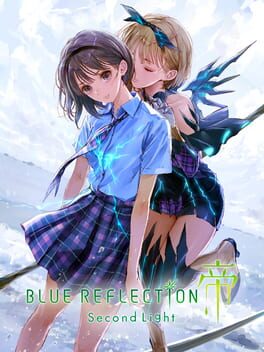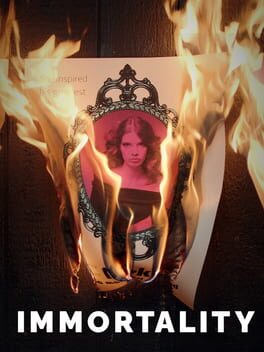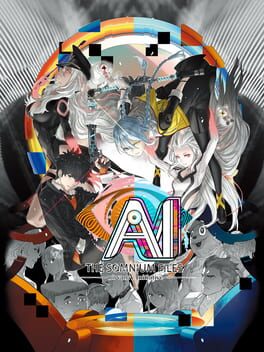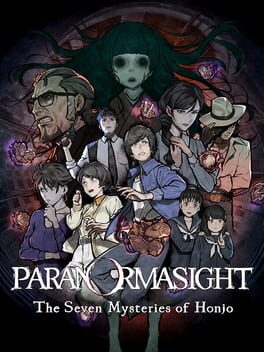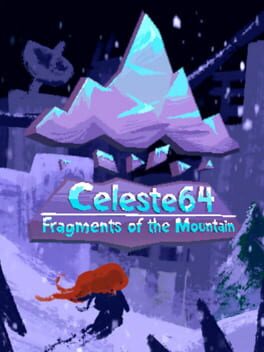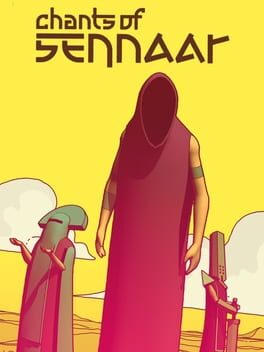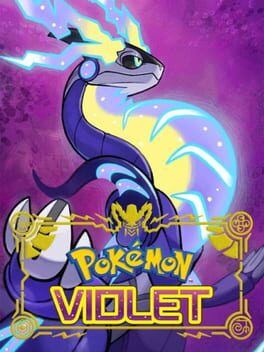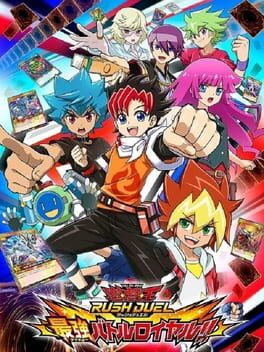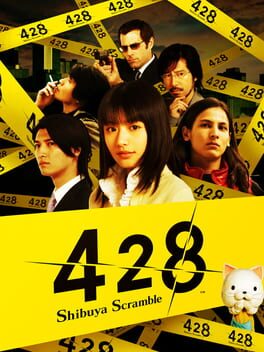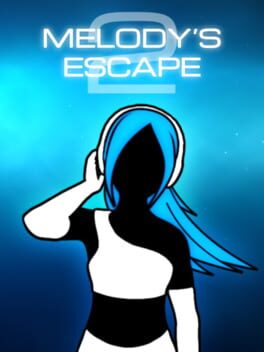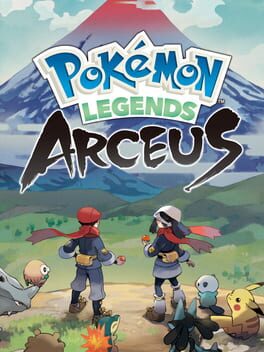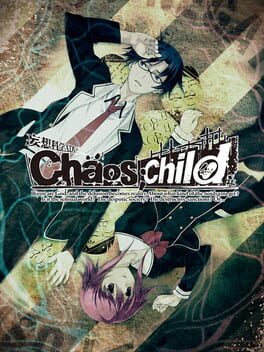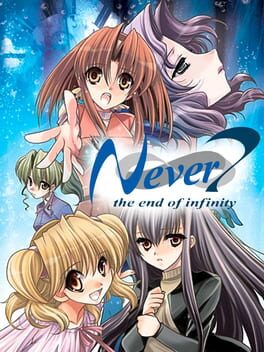LunaFlare
For the most part, this game is junk food. It's not the most fulfilling, but it's fairly low-effort way to experience an appealing if trashy flavour. The combat is never particularly challenging, but it still demands just enough input from the player - and shoves enough flashy nonsense into your eyeballs - that it remains engaging without being stressful, so you can pass the time well enough while you sit back and enjoy girls being gay.
It's worth noting that I skipped straight to this game, not playing the first - it seemed to be reviewed quite a bit more poorly, with reports of fanservice that might've bordered on outright uncomfortable. I was already taking a gamble, with very little idea if this would actually be any good, so it made sense to shoot for the best chances.
One really standout aspect of this game is the way Rena and Yuki's relationship is handled - undeniably explicit, a core part of their arcs, and a consistent factor the game still pays mind to once it's established. It had me grinning from ear to ear. That said, it does make all of the other casual intimacy in the game kind of weird - like, in almost any other context, I'd be saying "yeah these girls are gay as hell", but since the game has proven it's willing to actually come out and say it... what does it mean when it doesn't? I dunno. Nonetheless, seeing the girls walk around holding hands and go on "dates" where they lie in bed together is good for the soul.
The game does have a number of rough edges that add up to a janky experience, like, I could seriously nitpick all day. So I will.
- The camera in fights is all over the place.
- Enemy designs are just kind of weirdly abstract without any connection to what's going on in the game.
- The skill names all being in different languages for ~aesthetic~ makes them very difficult to memorise and assign meaning to.
- The crafting system demands a tedious excess of material grinding if you care about upgrading everything.
- The fragment system has a lot of niche or redundant effects, rather than encouraging interesting builds.
- The stealth segments are godawful and contribute little.
- There's a lot of asset reuse and padding - even if that one time it was totally justified and really cool.
- Having to wait for skill animations to play out makes timing awkward when blocking big attacks or in the whole one-on-one mode.
- Asking a whole second playthrough for the true ending in a game that is neither short nor deep is very questionable.
I definitely wouldn't go so far as to call this an outright bad game, it's just, I dunno - making good art is really hard, actually, and when you focus on the standout masterpieces that's easy to lose track of. Sometimes you need a little mid in your life.
That's a lot of complaining, but the game's pleasures are comparatively simple, as already described - flashy spectacle, hella yuri, and a relaxed pace. Ultimately, I did enjoy my time, and the game was exactly what I needed right now.
It's worth noting that I skipped straight to this game, not playing the first - it seemed to be reviewed quite a bit more poorly, with reports of fanservice that might've bordered on outright uncomfortable. I was already taking a gamble, with very little idea if this would actually be any good, so it made sense to shoot for the best chances.
One really standout aspect of this game is the way Rena and Yuki's relationship is handled - undeniably explicit, a core part of their arcs, and a consistent factor the game still pays mind to once it's established. It had me grinning from ear to ear. That said, it does make all of the other casual intimacy in the game kind of weird - like, in almost any other context, I'd be saying "yeah these girls are gay as hell", but since the game has proven it's willing to actually come out and say it... what does it mean when it doesn't? I dunno. Nonetheless, seeing the girls walk around holding hands and go on "dates" where they lie in bed together is good for the soul.
The game does have a number of rough edges that add up to a janky experience, like, I could seriously nitpick all day. So I will.
- The camera in fights is all over the place.
- Enemy designs are just kind of weirdly abstract without any connection to what's going on in the game.
- The skill names all being in different languages for ~aesthetic~ makes them very difficult to memorise and assign meaning to.
- The crafting system demands a tedious excess of material grinding if you care about upgrading everything.
- The fragment system has a lot of niche or redundant effects, rather than encouraging interesting builds.
- The stealth segments are godawful and contribute little.
- There's a lot of asset reuse and padding - even if that one time it was totally justified and really cool.
- Having to wait for skill animations to play out makes timing awkward when blocking big attacks or in the whole one-on-one mode.
- Asking a whole second playthrough for the true ending in a game that is neither short nor deep is very questionable.
I definitely wouldn't go so far as to call this an outright bad game, it's just, I dunno - making good art is really hard, actually, and when you focus on the standout masterpieces that's easy to lose track of. Sometimes you need a little mid in your life.
That's a lot of complaining, but the game's pleasures are comparatively simple, as already described - flashy spectacle, hella yuri, and a relaxed pace. Ultimately, I did enjoy my time, and the game was exactly what I needed right now.
2022
I make no secret in other reviews of how highly I think of knowledge-based investigation games, with Her Story being one of the early examples that really kicked off the popularity of this interesting little genre. Not only is this game another work from the very same director, but conceptually it blows the original out of the water with a massively expanded scope - you've got the plots of three movies, the fates of several actors, and a little something extra special all to keep track of. The amount of work it must have taken to put this all together is staggering.
Unfortunately, on the gameplay side of things, I do have a couple of qualms. While the mysteries are compelling once you've got more context, at the start before you really know what you're looking for, things can feel very aimless, making it hard to figure out what amongst the information overload is important to note. Conversely, while jumping between clips with shared objects is a novel idea that helps broaden your search early on, later when you're trying to find the last few new clips, the lack of control and inability to try specific things, as with Her Story's keywords, can be really frustrating, especially when trying to hunt down the secrets. By the end of the game I was pretty frustrated with the pace of progress, and when the credits rolled I felt a sense of relief more than anything, which isn't a great sign. Maybe this was just a skill issue on my end? But that took me out of the experience and made it harder to emotionally connect to the themes the game wanted to explore. It also left me missing some crucial scenes that I only found about later, despite the game declaring itself to be over.
Unfortunately, on the gameplay side of things, I do have a couple of qualms. While the mysteries are compelling once you've got more context, at the start before you really know what you're looking for, things can feel very aimless, making it hard to figure out what amongst the information overload is important to note. Conversely, while jumping between clips with shared objects is a novel idea that helps broaden your search early on, later when you're trying to find the last few new clips, the lack of control and inability to try specific things, as with Her Story's keywords, can be really frustrating, especially when trying to hunt down the secrets. By the end of the game I was pretty frustrated with the pace of progress, and when the credits rolled I felt a sense of relief more than anything, which isn't a great sign. Maybe this was just a skill issue on my end? But that took me out of the experience and made it harder to emotionally connect to the themes the game wanted to explore. It also left me missing some crucial scenes that I only found about later, despite the game declaring itself to be over.
This review contains spoilers
I wouldn't call this a coherent review, but here's all of My Thoughts I have to say about this game. I make no promise that this is well-organised, or working towards any particular conclusion. Spoiler warning for not only nirvanA Initiative, but also the first AITSF, as well as the Zero Escape and Infinity series.
I do agree with criticisms I've seen that a lot was sacrificed to enable the timeline twist, and that is unfortunate. Characters with timeskip designs can't appear, and conversely, characters who appear a lot can't have timeskip designs. This is sometimes justified cleverly in a way that ties into other parts of the plot, such as Shoma, but sometimes it's just arbitrary. Lien in particular suffers from this as it reinforces the perception that he's too old for Kizuna. Additionally, characters can't seem to change too much over the 6 years, especially Mizuki and Bibi, who also have to act similarly enough to each other to not give away the twist, with only the occasional aberration to make the player raise their eyebrow. This means de-emphasising traits Mizuki has that Bibi wouldn't, even when they're core parts of her appeal in the first game. Bibi gets some development in her role as the Masked Woman, but despite similar elements being inserted into Mizuki's backstory they don't feel as explored. These elements (as well as her newfound connection being the Most blood-related) also undermine her found family > blood family arc from the first game, which was the biggest factor in endearing me to her. I also just felt like we didn't get enough time with anyone, be that Ryuki, Tama, Mizuki, Bibi or Aiba. But that may in part be a consequence of the speed at which I played through the game.
All that said though, I do love the timeline twist. I don't think any Uchi twist that I've experienced has so radically reframed the player's perspective, even in Ever17. While that game does feature two distinct time periods made to appear the same, you still experience them in isolation from each other. The way they're twisted together, and all the elements in the story surrounding that, bring so much to the game. All the little events that link up together, like Boss chewing out Ryuki not for losing the target in the cathedral but really for shooting at the civilian. That's just one example, but there are countless. The true intensity of Ryuki's mental trauma, with his breakdowns and flashbacks occurring all before he contracts TC-PERGE. There's something I like about Bibi too, though I can't put my finger on it. And of course, the fact that this was all for the Frayer.
The Frayer is probably my favourite implementation of the player-avatar concept in an Uchi work. (Though it's basically only competing with Blick Winkel because ? is nothing and I don't like R11 don't tell the stans). The Frayer has undeniable relevance to the plot, but there's also plenty of plot not focused around them. In particular only certain characters are really involved, mostly Tokiko. And Tokiko is one of the most fascinating characters I've ever encountered. It's one of the most interesting fictional takes on Simulation Theory I've ever seen. She is right, and it drives her actions and ultimately she gets exactly what she wants. But as far as everyone else is concerned, they see no particular evidence that she's right and it doesn't matter. She'd go so far as to take her own life and have her body used to manipulate the Frayer. All the while, she's not completely detached from in-universe motivations, especially in her backstory, and it can be argued despair from this is what drove her to her worldview.
Another thing I like about the Frayer is how the game strikes a balance between Blick Winkel's unquestioned good and SELF's pre-assumed evil. Ryuki's mental health issues are compounded severely by his connection to the Frayer, but unlike R11 this isn't something that happened off-screen without you having a say in it, and the game doesn't crucify you for it either way. Instead, it's a direct consequence of you carrying "Dahlia Boat" across timelines, and you're left to consider those consequences for yourself.
Some more minor individual plot points- personal issues including Gender prevented me from getting too attached to any of the side endings in this game, being a blood-related father/son duo and two het romances. The latter in particular both had some glaring execution issues marring their solid ideas. As mentioned Lien appears older than he is and significantly older than Kizuna, especially pre-timeskip, and his stalking behaviour is explicitly called out in-game, with characters saying that Kizuna's acceptance of his is a bad idea, and then that's never really addressed as she immediately gets so excited by his proposal that she has to dance. This is followed up by an unseen timeskip where you talk to Lien and he sounds more familiar with Kizuna than he should be, it having secretly been 6 years since. It leaves him looking like a creep and Kizuna looking like a pushover. However the base idea of an ex-convict struggling for acceptance is definitely a good one, and I'll touch more on the game's recurrent themes later.
As for Gen and Amame, Gen's age is similarly made unclear, moreso because it's never actually confirmed, and at least one character outright says that he seems more like a father, with him not really fighting that label. I do think this is a potentially really interesting setup, but they don't explicitly explore the angle that makes it… OK. Reading between the lines here I think what's going on is that Gen is read as older than he is because of his bulk (as a result of Chikara's experiments), and people find it hard to consider him in terms of romance because of his deformity. He's internalised that, and accepts labels like Father or Friend to try and deny the feelings he doesn't feel he's worthy of having reciprocated. This makes his arc one of self-love, which is definitely part of the angle the game tries to go for in his Somnium, but that Somnium is so far removed from his ending, which seems to focus on the hetromantic feelings for Amame. Again, they're conceptually tied together, but the game doesn't make that connection in its own text strongly enough, I don't think. Regardless, the Amame and Gen ending is the moment in this game that most got me crying, with Amame's sobbing singing. Between that and Resolution Route, Faye Mata went the fuck off this game.
On that note, overall I don't think anything in this game got me remotely as emotional as moments in AITSF like Mizuki route or 41205. However, it excels in other elements like its horror undertones and metanarrative mystery. I think the two games are honestly quite dissimilar in their core appeal, which is maybe part of why they pushed the ability to play them independently. This can be a good thing, as it broadens the appeal of the overall series and covers more ground in terms of what we expect from Uchi. However, this can also leave people who were hoping for a tonal and thematic followup to AITSF disappointed. Personally I'm very glad both games exist, and I find it difficult to compare them for a relative ranking. On the note of the two games being separated, it's already been noted how Mizuki's character takes a hit, which is also due to other reasons. The same is true of Iris and Ota, who have to hide their timeskip designs. At the same time, Amame fuckin' Doi being a culprit is a masterstroke and is a prime example of an aspect that's enhanced by familiarity with AITSF. Date is something of a complicated topic. His horny jokes are more palatable when you're not hearing his internal monologue, and they're not as often aimed uncomfortably at specific people (Iris most of all). I also think the Porno Mag Power is somehow a good compromise between the goofiness of the QTEs in the first game and being legitimately cool. The way he throws the magazine in the air and beats up everyone before catching it. And having it reprised later, as an excuse to have ProZD say it, was hilarious. On the flip side, we don't see as much of his more mature, caring side, especially as it relates to Mizuki, with most of that being reserved for him as Ryuki's mentor. This is partially because he disappears for 6 years, but we don't even see Mizuki be particularly concerned by that, again partially because half the time it's actually Bibi.
To come back around to what I said about themes, I fucking love the undercurrent of disability love in this game. Ryuki's mental illness, Kizuna's wheelchair, Gen's deformity, Bibi's heart condition, none of them stop them from deserving love or kicking ass, despite them all grappling with such feelings. And Hitomi's arm was treated properly in the ending dance, even though she's an absolute bit character in this game! While not disabilities, this attitude of acceptance also extends to Lien's past and even Komeji's head, which looks strange pretty much just to make a silent point about that not mattering. Mizuki's speech in Marble was legitimately beautiful, and while I loved her spiel in the first game too it honestly wasn't too much deeper than "queer people exist and are cool", making this quite the step up.
The Somnia in this game are so good, it's ridiculous. They're all rich in tone, logically consistent and mentally engaging. The tense and horrifying ones like Neurotic Inception and Nonentity Incognito are like a return to the atmosphere of Zero Escape, and the light-hearted ones like Nemesis Identified and Necessary Intervention were absolutely hilarious.
The music in this game was largely great and some of my implementation issues from the first game were resolved, most of all the overplay of Alarming Incursion - though, this was mostly solved by just not having scenes in the Psync Room, which really cuts down on Boss's and especially Pewter's screen-time. Still, it's probably better for pacing. No use forcing a conversation in the Psync Room if there's nothing meaningful to say. I also appreciate how largely speaking, tracks re-used from the first game were used properly. There were a couple of standout issues, though. My new personal bugbear for this game, replacing Alarming Incursion, is meikAI. It was played once in AITSF, for the specific scene of Mizuki discovering Renju's body. In AINI it becomes a regular corpse discovery theme, and I don't think any of those moments could compare to the horror of a 12 year old girl finding her second parent like that. It's also made to loop, which wasn't the original compositional intent and doesn't sound very good. Distortion Instigating, a new tension theme, also kind of gets just overplayed, with the most comparable AITSF theme yakusAI being neglected. I like the new naming scheme for tracks, with the words from one name flowing into the next. It's neat, and which tracks are part of the same sequences sometimes show a connection, with clearly identifiable themes like "Tearer", "Aioen" and "Lien". Some personal highlights from the new soundtrack are Insane President and Snowy Nonlogical. Personally I don't like Half to Whole as much as Invincible Rainbow Arrow, the latter has this kind of earnest cringe anime OP shouty energy that specifically appeals to me. That said, my mind might end up changed as Half to Whole remains stuck in my head big time after finishing the game.
The English voice acting in this game was top notch as with the last. Depending on how you want to count it, Corina Boettger has as many as 6 different versions of Mizuki with varying levels of how similar they are to each other, and they nail the job. (I'm counting 12yo Date, 18yo Date, 18yo Bibi, 18yo Masked, 24yo Bibi, 24yo Masked). It's also fantastic to have a non-binary person in such a high-profile role. Greg Chun puts his all into Date's exaggerated reactions to porn both gained and lost, while still having the soft fatherly edge for when Date's being more mature. As mentioned before, Faye Mata did a fantastic job with Amame, ranging from devastating sobbing to desperate, murderous rage, all while being very much the same character as the goofy, no-name extra from the first game. Stephen Fu brought Ryuki to life, with everything from wacky antics in reenactments to his absolute mental breakdowns. Anairis Quiñones also nailed Tama, with a mix of sultry, caring and goofy. It's rare to find voice-acted laughter not obnoxious just by the nature of it naturally having to be forced, but somehow Tama's reactions to Komeji's jokes never hit that for me. On the topic of things that normally sound annoying, child characters - obviously Corina has been knocking Mizuki out of the park since AITSF, but we also get Shoma here who similarly sounds legitimately young without being an obnoxious falsetto, so props to Greg Vinciguerra. Of course everyone did a fantastic job, there's no performance I can think of that stands out as remotely subpar, but these are the ones I had specific comments on. Finally, fuck, it absolutely knocked me out to recognise Billy Kametz as Tearer. RIP.
Short of searching Discord for everything I've ever said about the game, I think that's most of my thoughts out there. It's hard to rate this impartially, I've spent basically all year anticipating it. It's a strange mix of "I'm biased to rate it highly because I'm hinging a lot on it" and "I'm biased to rate it low because it could never have reached my expectations". As well as just comparing it to other similar games feeling like apples and oranges. So I'm not going to give it a rational rating (with the 5 star being for vibes and personal importance), and anyone reading this should have already played the game so a recommendation is moot. I think in the long term, AITSF is going to be the game that means the most to me personally, while I'll consider AINI "just" another Uchikoshi game I love. And that sounds weird, but it's no small praise I assure you.
I do agree with criticisms I've seen that a lot was sacrificed to enable the timeline twist, and that is unfortunate. Characters with timeskip designs can't appear, and conversely, characters who appear a lot can't have timeskip designs. This is sometimes justified cleverly in a way that ties into other parts of the plot, such as Shoma, but sometimes it's just arbitrary. Lien in particular suffers from this as it reinforces the perception that he's too old for Kizuna. Additionally, characters can't seem to change too much over the 6 years, especially Mizuki and Bibi, who also have to act similarly enough to each other to not give away the twist, with only the occasional aberration to make the player raise their eyebrow. This means de-emphasising traits Mizuki has that Bibi wouldn't, even when they're core parts of her appeal in the first game. Bibi gets some development in her role as the Masked Woman, but despite similar elements being inserted into Mizuki's backstory they don't feel as explored. These elements (as well as her newfound connection being the Most blood-related) also undermine her found family > blood family arc from the first game, which was the biggest factor in endearing me to her. I also just felt like we didn't get enough time with anyone, be that Ryuki, Tama, Mizuki, Bibi or Aiba. But that may in part be a consequence of the speed at which I played through the game.
All that said though, I do love the timeline twist. I don't think any Uchi twist that I've experienced has so radically reframed the player's perspective, even in Ever17. While that game does feature two distinct time periods made to appear the same, you still experience them in isolation from each other. The way they're twisted together, and all the elements in the story surrounding that, bring so much to the game. All the little events that link up together, like Boss chewing out Ryuki not for losing the target in the cathedral but really for shooting at the civilian. That's just one example, but there are countless. The true intensity of Ryuki's mental trauma, with his breakdowns and flashbacks occurring all before he contracts TC-PERGE. There's something I like about Bibi too, though I can't put my finger on it. And of course, the fact that this was all for the Frayer.
The Frayer is probably my favourite implementation of the player-avatar concept in an Uchi work. (Though it's basically only competing with Blick Winkel because ? is nothing and I don't like R11 don't tell the stans). The Frayer has undeniable relevance to the plot, but there's also plenty of plot not focused around them. In particular only certain characters are really involved, mostly Tokiko. And Tokiko is one of the most fascinating characters I've ever encountered. It's one of the most interesting fictional takes on Simulation Theory I've ever seen. She is right, and it drives her actions and ultimately she gets exactly what she wants. But as far as everyone else is concerned, they see no particular evidence that she's right and it doesn't matter. She'd go so far as to take her own life and have her body used to manipulate the Frayer. All the while, she's not completely detached from in-universe motivations, especially in her backstory, and it can be argued despair from this is what drove her to her worldview.
Another thing I like about the Frayer is how the game strikes a balance between Blick Winkel's unquestioned good and SELF's pre-assumed evil. Ryuki's mental health issues are compounded severely by his connection to the Frayer, but unlike R11 this isn't something that happened off-screen without you having a say in it, and the game doesn't crucify you for it either way. Instead, it's a direct consequence of you carrying "Dahlia Boat" across timelines, and you're left to consider those consequences for yourself.
Some more minor individual plot points- personal issues including Gender prevented me from getting too attached to any of the side endings in this game, being a blood-related father/son duo and two het romances. The latter in particular both had some glaring execution issues marring their solid ideas. As mentioned Lien appears older than he is and significantly older than Kizuna, especially pre-timeskip, and his stalking behaviour is explicitly called out in-game, with characters saying that Kizuna's acceptance of his is a bad idea, and then that's never really addressed as she immediately gets so excited by his proposal that she has to dance. This is followed up by an unseen timeskip where you talk to Lien and he sounds more familiar with Kizuna than he should be, it having secretly been 6 years since. It leaves him looking like a creep and Kizuna looking like a pushover. However the base idea of an ex-convict struggling for acceptance is definitely a good one, and I'll touch more on the game's recurrent themes later.
As for Gen and Amame, Gen's age is similarly made unclear, moreso because it's never actually confirmed, and at least one character outright says that he seems more like a father, with him not really fighting that label. I do think this is a potentially really interesting setup, but they don't explicitly explore the angle that makes it… OK. Reading between the lines here I think what's going on is that Gen is read as older than he is because of his bulk (as a result of Chikara's experiments), and people find it hard to consider him in terms of romance because of his deformity. He's internalised that, and accepts labels like Father or Friend to try and deny the feelings he doesn't feel he's worthy of having reciprocated. This makes his arc one of self-love, which is definitely part of the angle the game tries to go for in his Somnium, but that Somnium is so far removed from his ending, which seems to focus on the hetromantic feelings for Amame. Again, they're conceptually tied together, but the game doesn't make that connection in its own text strongly enough, I don't think. Regardless, the Amame and Gen ending is the moment in this game that most got me crying, with Amame's sobbing singing. Between that and Resolution Route, Faye Mata went the fuck off this game.
On that note, overall I don't think anything in this game got me remotely as emotional as moments in AITSF like Mizuki route or 41205. However, it excels in other elements like its horror undertones and metanarrative mystery. I think the two games are honestly quite dissimilar in their core appeal, which is maybe part of why they pushed the ability to play them independently. This can be a good thing, as it broadens the appeal of the overall series and covers more ground in terms of what we expect from Uchi. However, this can also leave people who were hoping for a tonal and thematic followup to AITSF disappointed. Personally I'm very glad both games exist, and I find it difficult to compare them for a relative ranking. On the note of the two games being separated, it's already been noted how Mizuki's character takes a hit, which is also due to other reasons. The same is true of Iris and Ota, who have to hide their timeskip designs. At the same time, Amame fuckin' Doi being a culprit is a masterstroke and is a prime example of an aspect that's enhanced by familiarity with AITSF. Date is something of a complicated topic. His horny jokes are more palatable when you're not hearing his internal monologue, and they're not as often aimed uncomfortably at specific people (Iris most of all). I also think the Porno Mag Power is somehow a good compromise between the goofiness of the QTEs in the first game and being legitimately cool. The way he throws the magazine in the air and beats up everyone before catching it. And having it reprised later, as an excuse to have ProZD say it, was hilarious. On the flip side, we don't see as much of his more mature, caring side, especially as it relates to Mizuki, with most of that being reserved for him as Ryuki's mentor. This is partially because he disappears for 6 years, but we don't even see Mizuki be particularly concerned by that, again partially because half the time it's actually Bibi.
To come back around to what I said about themes, I fucking love the undercurrent of disability love in this game. Ryuki's mental illness, Kizuna's wheelchair, Gen's deformity, Bibi's heart condition, none of them stop them from deserving love or kicking ass, despite them all grappling with such feelings. And Hitomi's arm was treated properly in the ending dance, even though she's an absolute bit character in this game! While not disabilities, this attitude of acceptance also extends to Lien's past and even Komeji's head, which looks strange pretty much just to make a silent point about that not mattering. Mizuki's speech in Marble was legitimately beautiful, and while I loved her spiel in the first game too it honestly wasn't too much deeper than "queer people exist and are cool", making this quite the step up.
The Somnia in this game are so good, it's ridiculous. They're all rich in tone, logically consistent and mentally engaging. The tense and horrifying ones like Neurotic Inception and Nonentity Incognito are like a return to the atmosphere of Zero Escape, and the light-hearted ones like Nemesis Identified and Necessary Intervention were absolutely hilarious.
The music in this game was largely great and some of my implementation issues from the first game were resolved, most of all the overplay of Alarming Incursion - though, this was mostly solved by just not having scenes in the Psync Room, which really cuts down on Boss's and especially Pewter's screen-time. Still, it's probably better for pacing. No use forcing a conversation in the Psync Room if there's nothing meaningful to say. I also appreciate how largely speaking, tracks re-used from the first game were used properly. There were a couple of standout issues, though. My new personal bugbear for this game, replacing Alarming Incursion, is meikAI. It was played once in AITSF, for the specific scene of Mizuki discovering Renju's body. In AINI it becomes a regular corpse discovery theme, and I don't think any of those moments could compare to the horror of a 12 year old girl finding her second parent like that. It's also made to loop, which wasn't the original compositional intent and doesn't sound very good. Distortion Instigating, a new tension theme, also kind of gets just overplayed, with the most comparable AITSF theme yakusAI being neglected. I like the new naming scheme for tracks, with the words from one name flowing into the next. It's neat, and which tracks are part of the same sequences sometimes show a connection, with clearly identifiable themes like "Tearer", "Aioen" and "Lien". Some personal highlights from the new soundtrack are Insane President and Snowy Nonlogical. Personally I don't like Half to Whole as much as Invincible Rainbow Arrow, the latter has this kind of earnest cringe anime OP shouty energy that specifically appeals to me. That said, my mind might end up changed as Half to Whole remains stuck in my head big time after finishing the game.
The English voice acting in this game was top notch as with the last. Depending on how you want to count it, Corina Boettger has as many as 6 different versions of Mizuki with varying levels of how similar they are to each other, and they nail the job. (I'm counting 12yo Date, 18yo Date, 18yo Bibi, 18yo Masked, 24yo Bibi, 24yo Masked). It's also fantastic to have a non-binary person in such a high-profile role. Greg Chun puts his all into Date's exaggerated reactions to porn both gained and lost, while still having the soft fatherly edge for when Date's being more mature. As mentioned before, Faye Mata did a fantastic job with Amame, ranging from devastating sobbing to desperate, murderous rage, all while being very much the same character as the goofy, no-name extra from the first game. Stephen Fu brought Ryuki to life, with everything from wacky antics in reenactments to his absolute mental breakdowns. Anairis Quiñones also nailed Tama, with a mix of sultry, caring and goofy. It's rare to find voice-acted laughter not obnoxious just by the nature of it naturally having to be forced, but somehow Tama's reactions to Komeji's jokes never hit that for me. On the topic of things that normally sound annoying, child characters - obviously Corina has been knocking Mizuki out of the park since AITSF, but we also get Shoma here who similarly sounds legitimately young without being an obnoxious falsetto, so props to Greg Vinciguerra. Of course everyone did a fantastic job, there's no performance I can think of that stands out as remotely subpar, but these are the ones I had specific comments on. Finally, fuck, it absolutely knocked me out to recognise Billy Kametz as Tearer. RIP.
Short of searching Discord for everything I've ever said about the game, I think that's most of my thoughts out there. It's hard to rate this impartially, I've spent basically all year anticipating it. It's a strange mix of "I'm biased to rate it highly because I'm hinging a lot on it" and "I'm biased to rate it low because it could never have reached my expectations". As well as just comparing it to other similar games feeling like apples and oranges. So I'm not going to give it a rational rating (with the 5 star being for vibes and personal importance), and anyone reading this should have already played the game so a recommendation is moot. I think in the long term, AITSF is going to be the game that means the most to me personally, while I'll consider AINI "just" another Uchikoshi game I love. And that sounds weird, but it's no small praise I assure you.
Wow, wow, wow. I started the game not expecting to be swept up in the hype, and then every 10 minutes some new cool thing happened that had me excited and gobsmacked. The atmosphere is immaculate, the mystery is compelling, the characters are appealing. The visual style is really distinctive, though I worry about accessibility for those who experience eye strain. I really appreciate the acuity of the characters, putting details together and working cooperatively, not cluelessly dragging out a mystery for a long time. The metanarrative touches are also extremely, extremely cool. The game's a little short, but that helps with the brisk pacing, and the game is priced accordingly.
2020
This review contains spoilers
Whoo boy, I have some. contentious. opinions about this game. I don't like it very much at all, and I'll get into that below. But the short version is, the focus on absolute player freedom robs any of the choices you make of any weight or meaning, so this is an absolute failure of a detective game and I'm convinced people just like absorbing themselves in the aesthetic while putting on a facade of a detective story. Unfortunately the aesthetic isn't to my taste.
So. This is nominally a detective game, but it has a mission statement of giving the player absolute freedom to interpret the evidence how they want. The issue is, when you have all the evidence the truth of the matter is pretty unambiguous, and the game gives you assistance in finding all the evidence and no strong reason not to. Since they wanted any outcome to be valid, they couldn't actually reward you getting the correct one in gameplay or narrative, so the trial doesn't have any interactive arguments or dynamic elements, you just say what you think happened and the game uncritically accepts it unless you have absolutely 0 evidence. And then after the trial you can punish anyone you want in any way for no reason. So your investigation and the trial, the process of 99% of the game, had no consequence whatsoever, and the game's motto of "facts and truth are not the same" rings hollow because the facts DO point towards an unambiguous truth, making the free choice that destroys the rest of the game's design pointless anyway.
Think about Fallout New Vegas. Unlike past games in the same engine, which make heavy use of essential flags, you can kill any and every character in that game, and only one will come back. However, this leaves you with an empty, barren and boring game world. It's neat trivia, and it's something the player has freedom to do, but if you want to actually enjoy the game it's not something you're gonna plan to do. In Paradise Killer, you can accuse any character of any crime for any reason. For me, like FONV, this feels like empty whimsy, but Paradise Killer builds its game systems around this and fails to reward actual investment in the mystery story.
The collection of the evidence is also tedious and unsatisfying. Traversal of the open world is... ehhhh. And when you get evidence, rather than drawing conclusions or being presented with questions it can answer at the trial - the trial can't be scripted like that for player freedom, so instead the game just tells you what the evidence means. And even if it's perfectly incriminating, if you confront who it incriminates they just brush it off with a single dialog line, telling you to wait for the trial for any satisfaction. The trial is not satisfying.
Also, blood crystals being finite currency you can spend infinitely to fast travel is just. Wack. The open world itself, to warrant fast travel in the first place, is another element that brings only aesthetics through its collectibles and lore dumps, with absolutely no benefit to the detective gameplay.
So. This is nominally a detective game, but it has a mission statement of giving the player absolute freedom to interpret the evidence how they want. The issue is, when you have all the evidence the truth of the matter is pretty unambiguous, and the game gives you assistance in finding all the evidence and no strong reason not to. Since they wanted any outcome to be valid, they couldn't actually reward you getting the correct one in gameplay or narrative, so the trial doesn't have any interactive arguments or dynamic elements, you just say what you think happened and the game uncritically accepts it unless you have absolutely 0 evidence. And then after the trial you can punish anyone you want in any way for no reason. So your investigation and the trial, the process of 99% of the game, had no consequence whatsoever, and the game's motto of "facts and truth are not the same" rings hollow because the facts DO point towards an unambiguous truth, making the free choice that destroys the rest of the game's design pointless anyway.
Think about Fallout New Vegas. Unlike past games in the same engine, which make heavy use of essential flags, you can kill any and every character in that game, and only one will come back. However, this leaves you with an empty, barren and boring game world. It's neat trivia, and it's something the player has freedom to do, but if you want to actually enjoy the game it's not something you're gonna plan to do. In Paradise Killer, you can accuse any character of any crime for any reason. For me, like FONV, this feels like empty whimsy, but Paradise Killer builds its game systems around this and fails to reward actual investment in the mystery story.
The collection of the evidence is also tedious and unsatisfying. Traversal of the open world is... ehhhh. And when you get evidence, rather than drawing conclusions or being presented with questions it can answer at the trial - the trial can't be scripted like that for player freedom, so instead the game just tells you what the evidence means. And even if it's perfectly incriminating, if you confront who it incriminates they just brush it off with a single dialog line, telling you to wait for the trial for any satisfaction. The trial is not satisfying.
Also, blood crystals being finite currency you can spend infinitely to fast travel is just. Wack. The open world itself, to warrant fast travel in the first place, is another element that brings only aesthetics through its collectibles and lore dumps, with absolutely no benefit to the detective gameplay.
Short and sweet. Obviously not going to be as tight as the pixel-precision platforming of the original, nor as polished as a full game, but the level design is mostly made to compensate for it, though there were still some tricky moments with depth perception. Also, the presentation and the updates on the characters are both as cute as a button.
2023
OK, here's your hackneyed "like dark souls" comparison: it's Myst meets Obra Dinn meets Heaven's Vault. A point-and-click adventure puzzle game about using contextual inference to decipher various languages. And the game delivers on that premise fantastically, the satisfaction as your understanding of a word is confirmed by using it to solve a puzzle is unparalleled.
If I had one complaint, the stealth sections feel kind of unnecessary and out of place, but they're also fairly short, with quick and forgiving respawns, so it's kind of whatever. Some of the late game sequences also felt slightly unsatisfying, once you no longer really have anything new to grasp about the languages, but that's kind of inevitable, discovery can't last forever.
If I had one complaint, the stealth sections feel kind of unnecessary and out of place, but they're also fairly short, with quick and forgiving respawns, so it's kind of whatever. Some of the late game sequences also felt slightly unsatisfying, once you no longer really have anything new to grasp about the languages, but that's kind of inevitable, discovery can't last forever.
2022
OK, so, Donphan in the room, the technical issues. They're definitely present and noticable. For me personally, as a connoisseur of janky-ass games like Zero Escape, I'm not the kind of person to have my enjoyment affected by them, even if "the most profitable franchise in the world" should give its developers time to do actual QA. That said, I honestly don't think other aspects of the game feel that rushed at all.
First of all, as a baseline, it's Pokemon. This might be a hot take these days, but that's a pretty good thing to be! Palling around with these cute creatures and building your team in this accessible but relatively-deep JRPG framework is fun and satisfying.
The new facets of gameplay are great. A good open world is, IMO, characterised by being able to fuck around somewhere you have no right to be, and taking a risk to cheese a later-game event for an early reward. I was able to do both of those in this game, so it gets a thumbs up from me. I cannot comprehend the people who wanted this game to scale its levels to you. Have you ever heard of FF8? Oblivion? It would have been a disaster!
The multiple progression tracks, instead of having them arbitrarily and linearly interwoven, is a big winner for me too. It was great to be able to choose at my own pace when I'm sick of zipping between gyms, and go off to try another kind of challenge - with their own unique rewards. I actually found the gyms the least interesting part, because, get this - they had the least story attached.
Crazy, I know! I actually really like the writing in this game. It's no thematically deep narrative, but there's just enough going on to be interesting, and the character interactions - along with facial expressiveness - is honestly, actually, no-qualifiers good. Arven's desperate hope - almost in denial - that his injured companion can recover, Penny's blatant trans-coding, Team Star's unity in the face of being outcast, and the whole party dynamics when they come together at the end of the game - I love these idiots! There was a lot of love poured into the flavour for the school part of the game as well. And then the finale was actually a somewhat tense climax instead of a rote champion battle, complete with good old convoluted JRPG melodrama.
The multiplayer was a little disappointing - I get the impression that they couldn't do everything they wanted, because systems like the real-time, in-world battles feel made for multiplayer spectating but apparently it doesn't actually work that way. Still, just being able to hang out with friends in the same space while you do your own thing is a good time, and it does work very well with wild Pokemon, seeing each other battle and being able to share exclusives.
I dunno man! The game's good! Probably my favourite Pokemon game! I get that hating on Pokemon is the cool thing to do now because you couldn't import Scrimblo Bungus from Generation 2 into the last game but stop missing the forest for the poorly-rendered trees for just one second and actually evaluate the game on its own merits.
First of all, as a baseline, it's Pokemon. This might be a hot take these days, but that's a pretty good thing to be! Palling around with these cute creatures and building your team in this accessible but relatively-deep JRPG framework is fun and satisfying.
The new facets of gameplay are great. A good open world is, IMO, characterised by being able to fuck around somewhere you have no right to be, and taking a risk to cheese a later-game event for an early reward. I was able to do both of those in this game, so it gets a thumbs up from me. I cannot comprehend the people who wanted this game to scale its levels to you. Have you ever heard of FF8? Oblivion? It would have been a disaster!
The multiple progression tracks, instead of having them arbitrarily and linearly interwoven, is a big winner for me too. It was great to be able to choose at my own pace when I'm sick of zipping between gyms, and go off to try another kind of challenge - with their own unique rewards. I actually found the gyms the least interesting part, because, get this - they had the least story attached.
Crazy, I know! I actually really like the writing in this game. It's no thematically deep narrative, but there's just enough going on to be interesting, and the character interactions - along with facial expressiveness - is honestly, actually, no-qualifiers good. Arven's desperate hope - almost in denial - that his injured companion can recover, Penny's blatant trans-coding, Team Star's unity in the face of being outcast, and the whole party dynamics when they come together at the end of the game - I love these idiots! There was a lot of love poured into the flavour for the school part of the game as well. And then the finale was actually a somewhat tense climax instead of a rote champion battle, complete with good old convoluted JRPG melodrama.
The multiplayer was a little disappointing - I get the impression that they couldn't do everything they wanted, because systems like the real-time, in-world battles feel made for multiplayer spectating but apparently it doesn't actually work that way. Still, just being able to hang out with friends in the same space while you do your own thing is a good time, and it does work very well with wild Pokemon, seeing each other battle and being able to share exclusives.
I dunno man! The game's good! Probably my favourite Pokemon game! I get that hating on Pokemon is the cool thing to do now because you couldn't import Scrimblo Bungus from Generation 2 into the last game but stop missing the forest for the poorly-rendered trees for just one second and actually evaluate the game on its own merits.
I very much enjoyed this Sound Novel. It's kind of a fun shlocky action flick plot, but it's elevated by the real photography, the soundtrack, and the gameplay system of routes that interlock through your choices. It also, strangely for a visual novel, has quite the extensive postgame, which I experienced all of, and that adds quite a lot of breadth to the experience. There are some interface issues though, like a slow text speed, bad skipping capability, and no mouse support.
2022
I've got to say, a sequel to Melody's Escape was one of the last things I expected to see announced. The first one, like Audiosurf, was a decent way to listen to music while engaging with it more actively (ADHD brain woohoo). However, it had some issues - the relationship between the generated chart and the music was... tenuous, at best, and there was some seriously bad potential for eyestrain. After trying out the sequel now that it's come out in early access, here are some of my first impressions.
The new over-the-shoulder perspective is a lot better for the eyestrain issue, though it's still not perfect. Especially when the track is moving particularly fast, the sides can blur and pulse unpleasantly.
The new chart generation definitely has some wins, with sequences which are on-beat and match up in a fun way. However, this does make the misses stand out more. It doesn't feel like many of my mistakes are my fault, or at the very least it's hard to tell.
The lowest-intensity gameplay style, where Melody walks slowly and notes descend into her hand, is a jarring disconnect from the auto-runner nature of the rest of the game. It's terribly unclear where the target for the falling notes is.
All-in-all, no procedural rhythm game is ever going to rock the world, but as an interactive visualiser for your own music collection, I think this is one of my favourite in the genre so far. The gameplay is simple enough that it's much easier to land on a well-fitting chart, compared to something like Audiosurf.
The new over-the-shoulder perspective is a lot better for the eyestrain issue, though it's still not perfect. Especially when the track is moving particularly fast, the sides can blur and pulse unpleasantly.
The new chart generation definitely has some wins, with sequences which are on-beat and match up in a fun way. However, this does make the misses stand out more. It doesn't feel like many of my mistakes are my fault, or at the very least it's hard to tell.
The lowest-intensity gameplay style, where Melody walks slowly and notes descend into her hand, is a jarring disconnect from the auto-runner nature of the rest of the game. It's terribly unclear where the target for the falling notes is.
All-in-all, no procedural rhythm game is ever going to rock the world, but as an interactive visualiser for your own music collection, I think this is one of my favourite in the genre so far. The gameplay is simple enough that it's much easier to land on a well-fitting chart, compared to something like Audiosurf.
2022
It's hard to know what to say about this. I'd already fallen in love with the SNES original, so from my own perspective, crediting the remake with what a good game LIVE A LIVE is feels redundant. But it's also good to know for the vast majority of people coming to it as their first experience with the game. I'll focus on the details of the remake here, since that's the perspective I'm bringing to the game. For reference I'd probably rate the original 4.5 stars, which in my journal tends to mean "beloved game with noticeable flaws".
The remake deals with most of those flaws handily. There are two overarching issues I'd ascribe to the SNES original. The first is opacity in the combat system - the effect of your moves is described in a single line of text, which is even more compressed in the fan translation due to the efficiency of Japanese. Each character has a whole host of moves to try and figure out what they do, and you don't stay with them long enough to really learn it. It was overwhelming. The remake updates the battle screen to have all the information you need in the UI - a much longer description, elements and status effects summarised by icons, and a tracker for enemy health and weaknesses. The combat feels so much better now that you can easily tell your moves apart and see when to apply them to weaknesses.
The other big issue was the old school JRPG event flag jank. Several chapters involve wandering from point to point trying to figure out what progresses the plot, with navigation sometimes being difficult and objectives unclear. The remake adds an objective radar to the screen. Much has been said of how objective markers are the scourge of modern game design etc etc but I think it works really well here. It only ever points to the main objective to progress the plot of the chapter, players are still expected to find things on their own where that was originally true, such as exploration in the Western and Ninja chapters. Otherwise, chapters are short and linear enough as a result of their bite-sized nature that it's not like there's some grand adventure they're spoiling.
With those issues solved, what about other improvements? Well, the new translation (and of course remember the fan translation was never official) is largely fantastic, though some the punch isn't quite there for some one-liners the Japanese community seems to love. This is presumably a result of SE's localisation policy being holistic rather than line-by-line, and overall I think that's a good thing, so this is just a natural trade-off with that approach.
It barely bears saying that the HD-2D style looks fantastic. What stands out here is how the enemy designs are fundamentally the same, compare and contrast any sprite with the SNES original, and it transfers so well to the style here. It's a perfect fit for the Octopath style of "tiny protag, giant boss", 24 years earlier.
To be completely honest, I was kind of unsure how I felt about the arranged OST from some of the trailers - but seeing it in practice, no, it's great. Shimomura's original compositions still stand up, and the new arrangements breathe them some fresh air for the modern era.
I don't want to get too into the weeds here but there were a host of small mechanical changes to individual things that I found were all improvements.
All in all, this is exactly the remake the game has always needed. It's the same fantastic core game, with a beautiful new presentation, and fixing the janky accessibility issues with the original. I couldn't be happier.
The remake deals with most of those flaws handily. There are two overarching issues I'd ascribe to the SNES original. The first is opacity in the combat system - the effect of your moves is described in a single line of text, which is even more compressed in the fan translation due to the efficiency of Japanese. Each character has a whole host of moves to try and figure out what they do, and you don't stay with them long enough to really learn it. It was overwhelming. The remake updates the battle screen to have all the information you need in the UI - a much longer description, elements and status effects summarised by icons, and a tracker for enemy health and weaknesses. The combat feels so much better now that you can easily tell your moves apart and see when to apply them to weaknesses.
The other big issue was the old school JRPG event flag jank. Several chapters involve wandering from point to point trying to figure out what progresses the plot, with navigation sometimes being difficult and objectives unclear. The remake adds an objective radar to the screen. Much has been said of how objective markers are the scourge of modern game design etc etc but I think it works really well here. It only ever points to the main objective to progress the plot of the chapter, players are still expected to find things on their own where that was originally true, such as exploration in the Western and Ninja chapters. Otherwise, chapters are short and linear enough as a result of their bite-sized nature that it's not like there's some grand adventure they're spoiling.
With those issues solved, what about other improvements? Well, the new translation (and of course remember the fan translation was never official) is largely fantastic, though some the punch isn't quite there for some one-liners the Japanese community seems to love. This is presumably a result of SE's localisation policy being holistic rather than line-by-line, and overall I think that's a good thing, so this is just a natural trade-off with that approach.
It barely bears saying that the HD-2D style looks fantastic. What stands out here is how the enemy designs are fundamentally the same, compare and contrast any sprite with the SNES original, and it transfers so well to the style here. It's a perfect fit for the Octopath style of "tiny protag, giant boss", 24 years earlier.
To be completely honest, I was kind of unsure how I felt about the arranged OST from some of the trailers - but seeing it in practice, no, it's great. Shimomura's original compositions still stand up, and the new arrangements breathe them some fresh air for the modern era.
I don't want to get too into the weeds here but there were a host of small mechanical changes to individual things that I found were all improvements.
All in all, this is exactly the remake the game has always needed. It's the same fantastic core game, with a beautiful new presentation, and fixing the janky accessibility issues with the original. I couldn't be happier.
The comparisons to BotW are right, but not in the way they think. It's not about being an open-world survival game, which this kind of isn't, but about throwing away decades of restrictive series trappings to present the core appeal of the franchise in a refreshing new way. The visuals are a bit janky and the unconfigurable controls are frankly bizarre, but the core gameplay loop is super satisfying, the music is fantastic, and even the story pleasantly surprised me.
2014
Oh geez, where do I begin?
I think the best way to put it is such: this is a game I wish I could hate. Unfortunately, its highs are too high, even if there are so many lows. The climax to the common route is compelling and thematically interesting, while Nono's route is legitimately heartwarming. For all I'm going to complain about writing and characters below, when they're trying to make an actually good person, I couldn't help but get attached.
However, the other character routes vary from a complete swerve in the game's focus, to "what the fuck am I looking at?". I'm not sure if the true ending connected with me, I'm still sitting on it, but it's certainly doesn't have the immediately obvious quality of my favourite routes.
The game is full to the brim with all the worst associations of the anime aesthetics. Even outside of the extremely offputting "positive delusions", there are constant eye-rolling jokes, general creepiness, and just a sense of "why did this need to be included". Need I remind you that this game is largely set at a school.
While I'm aware it's intentional, characters like Takuru and Itou are intolerable to put up with, especially early-game, and between Takuru's magazines and the online forums, the writers seem to have a great insight to the minds of the worst kinds of people. Some of the stuff I read made me feel sicker than any of the gore the game is known for.
On that note, the delusion system is kind of weak. Besides all of the content just being offputting, speeding through the entire game to redo a handful of choices, without a chapter skip or anything, is very tedious, and for all but one route it boils down to "positive delusion on the focus character". Only a handful of negative delusions are ever required, for one route in particular, so outside of that I just... never opted into one? And never felt like I was missing out. So it felt disjointed. Not to repeat myself, but I wish I could have skipped out on more positive delusions... It doesn't help that your reward for all of this is the largely-weak character routes.
There are some games I get anxious to recommend, because while I love them, they're flawed, and they contain offputting content, and mostly I love these games despite that, having to overlook them for what they do best. In this case, the offputting content is so overwhelming, the best parts so buried underneath it, that I could not imagine telling my friends to play this game. But I can't just discard it, I can't hate it like I wish I could, because damn it I'm glad Nono Kurusu's story exists. Still, I've always been wary of the Sci;ADV series and this does not give me the courage to take another chance on it.
I think the best way to put it is such: this is a game I wish I could hate. Unfortunately, its highs are too high, even if there are so many lows. The climax to the common route is compelling and thematically interesting, while Nono's route is legitimately heartwarming. For all I'm going to complain about writing and characters below, when they're trying to make an actually good person, I couldn't help but get attached.
However, the other character routes vary from a complete swerve in the game's focus, to "what the fuck am I looking at?". I'm not sure if the true ending connected with me, I'm still sitting on it, but it's certainly doesn't have the immediately obvious quality of my favourite routes.
The game is full to the brim with all the worst associations of the anime aesthetics. Even outside of the extremely offputting "positive delusions", there are constant eye-rolling jokes, general creepiness, and just a sense of "why did this need to be included". Need I remind you that this game is largely set at a school.
While I'm aware it's intentional, characters like Takuru and Itou are intolerable to put up with, especially early-game, and between Takuru's magazines and the online forums, the writers seem to have a great insight to the minds of the worst kinds of people. Some of the stuff I read made me feel sicker than any of the gore the game is known for.
On that note, the delusion system is kind of weak. Besides all of the content just being offputting, speeding through the entire game to redo a handful of choices, without a chapter skip or anything, is very tedious, and for all but one route it boils down to "positive delusion on the focus character". Only a handful of negative delusions are ever required, for one route in particular, so outside of that I just... never opted into one? And never felt like I was missing out. So it felt disjointed. Not to repeat myself, but I wish I could have skipped out on more positive delusions... It doesn't help that your reward for all of this is the largely-weak character routes.
There are some games I get anxious to recommend, because while I love them, they're flawed, and they contain offputting content, and mostly I love these games despite that, having to overlook them for what they do best. In this case, the offputting content is so overwhelming, the best parts so buried underneath it, that I could not imagine telling my friends to play this game. But I can't just discard it, I can't hate it like I wish I could, because damn it I'm glad Nono Kurusu's story exists. Still, I've always been wary of the Sci;ADV series and this does not give me the courage to take another chance on it.
Pacing-wise, the balance of "interesting sci-fi mystery" to "slice of life dating sim" is more evenly distributed than the infamously backloaded Ever 17, but on the whole there's a lot more focus on the latter than most of Uchikoshi's other work. From the perspective of "an Uchikoshi VN" it's mostly a curiosity, as the origin of some elements referenced in the other Infinity games - though it's certainly not without some interesting aspects. The Never 7 Eternal Edition fan remake is an amazing work of preservation though, lined up against a host of ports with inconsistent content and bugs galore.
E: OK, honestly, every time I think about this game I give it more credit for its interesting ideas. I need to do a replay with the intent of meeting it on its own terms.
E: OK, honestly, every time I think about this game I give it more credit for its interesting ideas. I need to do a replay with the intent of meeting it on its own terms.
